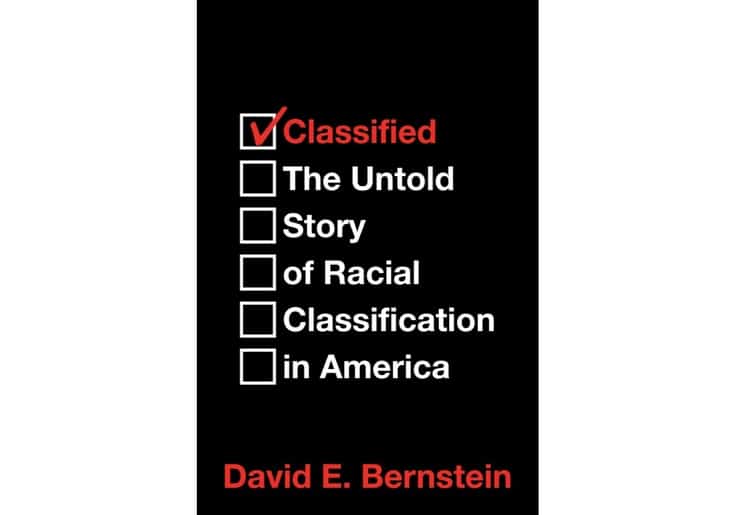Anyone with an ounce of good sense knows that destructive identity politics is run amuck in America and elsewhere. All incentives these days seem to go in one direction: toward identifying oneself as a member of an aggrieved group supposedly due compensation through government action — of course at the expense of people who had nothing to do with the grievance. The actual perpetrators (if any), like the actual victims, tend to have long departed this world.
Where real victims and perpetrators are still on the scene, grievances ought to be handled on an individual basis with due process, rather than through pressure-group pandering. But we may justifiably wonder why innocent taxpayers should bear the consequences for offenses their rulers committed.
Like so many things, identity politics, as the name itself tells us, would be little more than an annoyance if the U.S. government didn’t have nearly plenary power over society. But it does have it, and so the politicians and bureaucrats and their pressure groups have profited immensely from dividing us into racial, ethnic, national, and other sorts of groups. This sows the ground for social strife that harms us all.
At different times and places, such classification has been used to enslave, otherwise harm, and even exterminate despised groups; at other times, like now, it’s been used to distribute taxpayer money and other benefits to politically favored groups. This stimulates people outside the government to game the system in order to win advantages at the expense of others. Incentives have consequences.
Another potential effect is to provoke a backlash from the majority that bears the burdens of favoritism. This adds yet another layer of resentful identity consciousness to the volatile mix. No one should want to see a society torn apart by racial, ethnic, or similar conflict. Too much depends on social cooperation and the benevolent toleration that underlies it.
Identity politics should be especially objectionable in a country ostensibly founded on freedom and individualism. Treating human beings as interchangeable members of racial, ethnic, or other groups is execrable collectivism.
Now imagine that the government’s categories constitute a crazy quilt of arbitrariness, caprice, and pressure-group pandering. Wait — you don’t have to imagine it. You can see it in contemporary America.
What began in the late 1970s as an effort to make record-keeping consistent across government departments has since morphed, contrary to stated policy, into a political device to treat Americans differently according to their race and ethnicity. The goal was to distribute such favors as government loans, contracts, hiring, and college admissions to aggrieved group members. Differential treatment was even applied during the COVID-19 pandemic. It was all justified in the name of righting past wrongs, that is, using discrimination to counteract previous earlier discrimination, real and imagined. (As Thomas Sowell has demonstrated, statistical disparities are not in themselves evidence of discrimination.)
Because of the government campaign to define those groups, it’s now impossible to fill out any kind of form or application without being asked to identify one’s race, ethnicity, “gender” (whatever that may mean today), and “sex assigned [sic] at birth.”
Thus we should thank David Bernstein of George Mason University’s Antonin Scalia Law School, author of Classified: The Untold Story of Racial Classifications in America, for ripping away the veil of this horrendous and ridiculous system. The story he tells would be hilarious if it weren’t pernicious and illiberal. As he points out in this lecture, although the government warned decades ago that the categories had no scientific foundation and were not to be used to determine “eligibility for government programs,” that is exactly what happened. The obsession with these arbitrary categories extends even to medical research, which is crazy, not to mention dangerous.
In his talk Bernstein provides lots of examples of absurdity. For example, the category Asian includes Americans descended from national groups that have very little in common, such as Filipinos, Japanese, and Pakistanis. While Indians (from the subcontinent) are classified as Asian, the related Afghans are classified as white, as are Arabs and Iranians. (You can see how this could wreak havoc with medicine.)
One might think that the classification black or African American is justified for government consideration because many black Americans are descendants of American slaves and victims of Jim Crow. But how would that justify including Nigerians who freely immigrated more recently and who are doing quite well?
The category Hispanic also makes little sense. By what standard does an American directly descendant from Spaniards qualify for government favors? Americans with roots in other European countries get no favors. The Spanish came to the New World not as victims but as conquerors, so whence the victimhood? You might think that Hispanic was meant to designate the mixed Spanish and Portuguese Indians from south of the border. But if that’s the case, why aren’t they simply classified as Indian? Bernstein explains: that category was reserved only for Indians with roots in North America above the Rio Grande, including Canada. Expanding the category further would have unacceptably spread the benefits too thin. So pressure groups opposed it.
If the government was forbidden to dispense benefits to particular individuals and groups, it would lose the opportunity to use the arbitrary classifications that Berstein documents. On the other hand, if some reasonable classification is useful to document government mistreatment of particular groups, I’m confident that civil liberties watchdogs will find a way to handle it.
Racial and ethnic classification is a territory best kept off-limits to the state. Have we learned nothing from history?

































